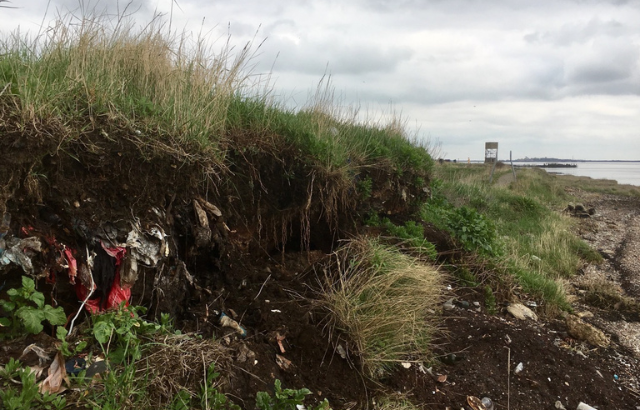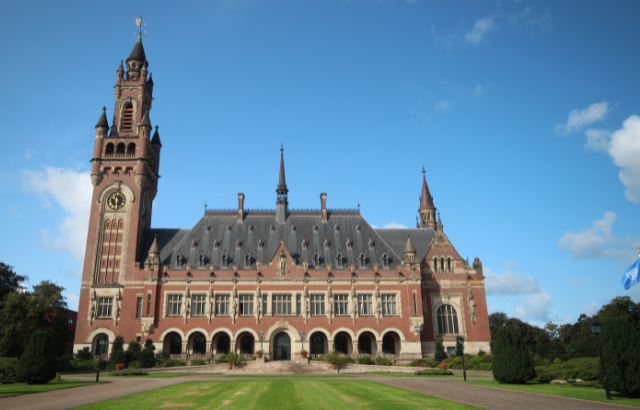Coronavirus: to avoid major humanitarian fallout, UK must act urgently
Professor Sophie Harman, Professor of International Politics, with the School of Politics and International Relations, wrote an opinion piece for The Conversation about the vulnerability of the UK's welfare system in facing up to the coronavirus.

A woman offers help to a homeless man
Without an appropriate response, health emergencies like the one the world is currently experiencing can tip over to become humanitarian crises. This tipping point often occurs when a health system is overwhelmed by large numbers of patients, combined with the acute societal effects of an outbreak – such as people’s inability to pay their rent or mortgage or get enough food.
Despite what many may think, humanitarian issues are not just limited to low and middle-income countries or conflict zones. They are a core part of responding to global health outbreaks and can happen in high-income countries in Europe. And right now the UK is at a tipping point of humanitarian concern.
Dame Louise Casey advises the government on homelessness. She announced on BBC Radio 4’s The Today Programme, that the outbreak of coronavirus is not just about health vulnerability, but that it’s also about welfare vulnerability. This outbreak is going to show how decimated the UK’s welfare system is. And it is the most vulnerable in society that will suffer most.
Stockpiling will hit food banks. Lack of sick pay in the gig economy will push workers into greater poverty. The disaster that is Universal Credit will not provide for the additional numbers of people seeking help. This does not even begin to cover the increased need for adult social care provision, vulnerable children, support services for domestic abuse (isolation and quarantine can be a huge risk for women), or the safety of workers that deliver these services.
These essential services in the UK are provided by local authorities. The same local authorities that have been subject to a cut of 49% in real terms between 2010 and 2018, according to the GMB Union and National Audit Office. Local authorities have already struggled to maintain essential services for the most vulnerable in society. It will be impossible for them to handle the humanitarian fallout brought about by coronavirus without extra government funding and support.
Funding questions
The UK government has pledged £5 billion to a COVID-19 response fund for the NHS “and other public services”. “Other public services” here refers to “local authority actions to support care services and vulnerable people”.
The government has also said that it will ensure “that funding is available so other public services are prepared and protected”. But it’s unclear how this £5 billion is to be divided up.
The NHS and Public Health England rightfully need as much money as they can get and it’s good the government recognises the need for greater cash for local authorities. But the UK government also needs to recognise that health emergencies have humanitarian effects and need separate budget allocation. To bundle all of this together under the £5 billion will lead to problems.
Competing responses
My own research with Clare Wenham, assistant professor of global health policy at London School of Economics, shows how failure to understand the difference between health crises and the humanitarian impacts of those crises can significantly delay, confuse, and intensify the response to the crisis.
In such instances, already overburdened health services may become responsible for addressing the humanitarian impacts. This can lead to two competing systems of governance –- the healthcare response and the humanitarian response – which can cause confusion and overlap if not fully understood from the outset.
Funding allocation also becomes confused and ends up creating tension between different sectors, all in desperate need of money and resources. And, ultimately, those most in need slip between the cracks of the health and humanitarian responses.
This will have significant consequences for the secondary health impacts of the outbreak – such as care for the vulnerable, homelessness and access to basic needs such as food.
Not just a health issue
So if the UK government is serious about responding to this health emergency it needs to stop seeing it in purely health terms and act now to stop it spilling over into a humanitarian concern.
Decades of austerity already mean that the UK is tackling the health and social impacts of the virus from a position of weakness. Tacking care of vulnerable adults and children and increasing numbers of people who will need welfare assistance on to NHS spending is not enough. Care and welfare provision must be valued as equally important to health rather than an afterthought.
Valuing care and welfare while allocating proper budgetary spending will help to minimise the impact of the outbreak in an already broken welfare system – and will help to protect the most vulnerable. This is important and is ultimately the way to stop a health emergency becoming a humanitarian crisis.
This opinion piece was originally published in The Conversation on 18 March 2020.
Related items

10 December 2024

10 December 2024
For media information, contact:
